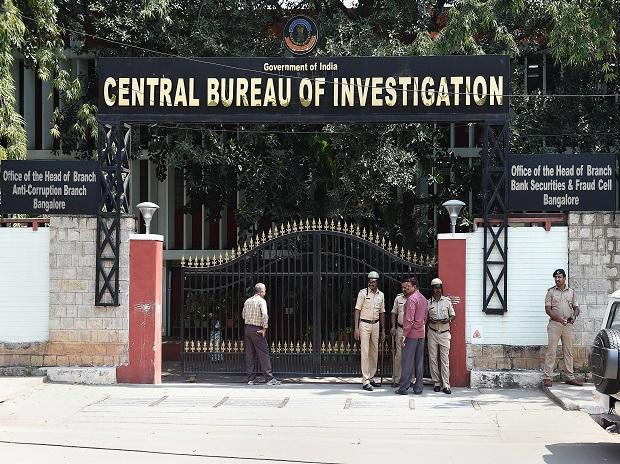
Centre brings Ordinance to extend tenure of CBI, ED chiefs up to 5 years
Last Updated on January 18, 2023 by Admin
[ad_1]
Days before the winter session of Parliament, the government on Sunday passed two Ordinances extending the tenures of the Central Bureau of Investigation (CBI) and Enforcement Directorate (ED) chiefs to up to five years.
The chiefs of the central agencies currently have a two-year tenure. The Ordinance is clearly aimed to ensure the continuance of current ED chief S K Mishra, who is already on an extension, having reached 60 in 2020. His term would have come to an end on November 17.
Both Ordinances have been signed by President Ram Nath Kovind.
The chiefs of the top agencies can be given extensions, according to the Ordinances, every year for up to three years after they complete the two-year term.
“Provided that the period for which the Director of Enforcement holds the office on his initial appointment may, in public interest, on the recommendation of the committee under clause (a) and for the reasons to be recorded in writing, be extended up to one year at a time: provided further that no such extension shall be granted after the completion of a period of five years in total, including the period mentioned in the initial appointment,” reads an official statement.
A Supreme Court Bench — headed by Justice L N Rao — recently passed an order in the case linked to the extension of Mishra, who took charge in 2018, underlining the extension of tenure “should be done only in rare and exceptional cases”. His observation followed a fierce argument in court after senior advocate Dushyant Dave, appearing for the petitioner non-governmental organisation Common Cause, said that extension of tenure beyond retirement age was done because the officer was a “favourite”.
“You can’t just go giving extensions. This demoralises the (other) officers. If you are the government’s favourite, you will be appointed and if you aren’t an independent officer, you won’t be appointed,” contended Dave.
The government’s law officer Tushar Mehta defended the government, saying “the (appointments) committee went through the performance appraisal reports of the last 10 years of each candidate. For the last 10 years, the report said he was ‘outstanding’. Such decisions by the system devised by our country are not by someone’s whims and fancies”.
To this, Justice L N Rao observed: “Even if Mishra is excellent, we cannot have him continue till all these cases are over. He is doing good work, but the question is whether his tenure can be extended.”
The retired Indian Police Service (IPS) officer fraternity reacted to the move with surprise and outrage.
Yashovardhan Azad, who is currently the central information commissioner and has been an IPS officer for 40 years, told Business Standard: “This move will render the chiefs of important investigative agencies to the status of daily wage-earners. It will demoralise younger talent and undermine the autonomy and independence of the agencies. That the Ordinances were brought just before a Parliament session means they were not meant to be a move to reform and streamline the functioning of the agencies, but designed for particular individuals. I am most disappointed.”
Former Commissioner of Delhi Police Neeraj Kumar said: “I am surprised. I hope this does not lead to other agency heads seeking similar extensions. Should that happen, it would not be in the best interests of human resource management down the line”.
The ED enforces two central laws — the Prevention of Money Laundering Act and the Foreign Exchange Management Act (FEMA). The agency has been pursuing money-laundering probes into a range of high-profile bank fraud cases registered by the CBI, and cases related to the Black Money (Undisclosed Foreign Income and Assets) and Imposition of Tax Act. It has also carried attachment and seizure of properties in alleged terror-funding cases linked to first information reports filed by the national investigation agency.
The ED under Mishra is overseeing multiple cases of alleged money laundering against Opposition leaders. These include allegations against bank director, Maharashtra leader Sharad Pawar’s nephew and former Maharashtra deputy chief minister Ajit Pawar, and 70 former functionaries of the bank.
The ED also registered a money-laundering case against former Uttar Pradesh chief minister (CM) and Samajwadi Party chief Akhilesh Yadav in an illegal mining case, the INX Media case, relating to foreign exchange violations under FEMA, the allegedly illegal transfer of property in Panchkula by then CM Bhupinder Singh Hooda and late party treasurer Motilal Vora to Associated Journals owned by Congress President Sonia Gandhi and Rahul Gandhi and a host of other cases.
A serving IPS officer who did not want to be named said: “Now the government can tell the ED chief: ‘today you’ve done good work. Let us see if you can keep this up tomorrow. Otherwise…’”.
A senior civil servant pointed out that this is not the first instance of the government’s pick-and-choose policy regarding heads of investigative agencies. When the issue of appointing Rakesh Asthana as Commissioner of Delhi Police had come up, the government gave an affidavit in court saying the current crop of officers in the Arunachal Pradesh, Goa, Mizoram, Union Territory cadre (from where the Delhi Police Commissioner is usually picked) had no suitable person, which is why they had been compelled to bring an officer from outside the cadre for the job.
[ad_2]
Source link




